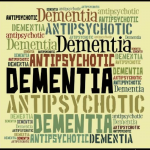Since 2006, the number of skilled facilities cited by CMS for the use of unnecessary medications (F 329) increased nearly 75%. In response, the Centers for Medicare and Medicaid Services (CMS) identified reducing the off-label use of antipsychotics among patients/residents of skilled nursing centers as one of its priorities and set goals for a 15% reduction of off-lable and other uses of antipsychotic medications.
In September of 2014 The National Partnership to Improve Dementia Care announced that it met its initial goal of reducing the national prevalence of antipsychotic use in long-stay nursing home residents by 15.1 percent. It also announced a new goal of a 25 percent reduction by the end of 2015, and a 30 percent reduction by the close of 2016 using the prior baseline rate (fourth quarter of 2011).
The goal of antipsychotic drug use reduction is the improved care of residents and viable alternatives to antipsychotic medication. CMS is emphasizing non-pharmacological alternatives for nursing home residents, including potential approaches such as consistent staff assignments, increased exercise or time outdoors, monitoring and managing acute and chronic pain, and planning individualized activities.
Over the 21 months since the inception of these initiatives the national prevalence of antipsychotic use by long-stay nursing home residents was reduced by 17.1 percent (from 23.8 percent to 19.8 percent). While some states showed much more improvement than others. All 50 states and every CMS region showed at least some improvement. (Data on all states is available at CMS.gov under media release Fact Sheets). Short-stay incidence rates improved as well.
The new goals are to:

Programs and initiatives have been in place on the CMS, state HealthCare Associations, AHCA, NCAL and ALFA web sites for use by skilled nursing facilities for two to three years. Initiatives, interventions, culture change tools, etc. are available for your use. The Alzheimer’s Association also has programs and alternative interventions, available on their web site.
A large number of the individuals in skilled nursing centers are living with some type of dementia. For these individuals behavior often becomes a key form of communication. This can be challenging for families and staff, and too often antipsychotic medication is used in an attempt to modify behavior. The use of antipsychotic medication to treat behavior associated with dementia is not supported clinically and is considered off-label by the FDA, which issued a “black box” warning for the elderly with dementia
Why are we discussing this today?
The General Accounting Office (GAO) announced on March 3, 2015 they will be focusing on Assisted Living residents with dementia receiving too many antipsychotics:
“Assisted living residents with dementia receiving too many antipsychotics, GAO says.”
As an organization and a profession we need to set the pace for others. Many of our communities have already begun to monitor and reduce the use of the inappropriate use of antipsychotics in our general and dementia populations.
In response to the GAO announcement, if you have not begun to examine this issue in your community it is suggested you begin to do so as soon as possible. We can take responsibility and make adjustments to our care models and interventions prior to receiving additional oversight or federal or state regulatory requirements.
As stated, many resources are available to assist you in changing the way residents utilizing antipsychotic medications are monitored and managed. Some of those resources are listed below:
The HealthCare Association of New Jersey (HCANJ.org) Best Practices Section
- Report on the Committee on Changing the Culture of Dementia Care to Reduce Inappropriate Use of Antipsychotic Medication
- A Guide for Caregivers in Managing Challenging Behavior
- Measurement Summary
– The American HealthCare Association/National Center for Assisted Living
- http://www.ahcancal.org/quality_improvement/qualityinitiative/Pages/Antipsychotics.aspx
– Assisted Living Federation of America (ALFA)
– Centers for Medicare and Medicaid Services
- Fact sheets: Data show National Partnership to Improve Dementia Care exceeds goals to reduce unnecessary antipsychotic medications in nursing homes
– Arizona HealthCare Association
– Agency for Healthcare Research and Quality (AHRQ) AHRQ.gov
Through active communication with physicians, families, staff and residents we can reduce antipsychotic use. As a profession Assisted Living can improve our approaches to dementia care and improve the quality of life for our residents.
